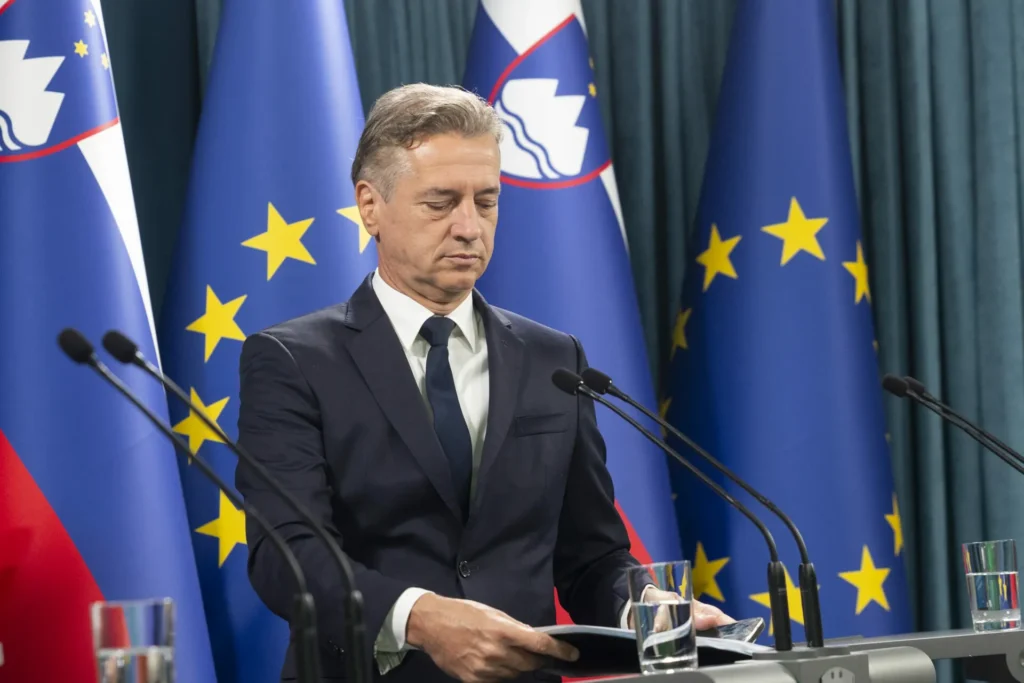In a press statement, the Prime Minister said that Slovenia had succeeded in briefly linking the USA and Russia in a “good story.” If you only listened to the Prime Minister and his loyal left-wing media, you would believe that he and Slovenia were at the heart of the diplomatic venture. However, the foreign media – in Russia and in the West – tell a very different story. The story of Slovenia, which would probably never have arrested the Russian spies even if it had found out about them by accident.
“From day one, I believed we could pull this off. Yet personal trust between leaders is crucial in negotiations of this kind, especially when they take place in complete secrecy. I spoke to the President of the United States, Mr Biden, last night when he thanked me personally, as well as the Slovenian people, for this crucial contribution to making it possible to save the lives of people from Russian prisons. Slovenia has succeeded in a historic action, we have succeeded, if only for a brief moment, in bringing both the United States of America and Russia together in a good story. In doing so, Slovenia has once again demonstrated that the power we have on the international stage is much greater than our size,” the Prime Minister said.
Was this really a “great achievement” for Slovenia?
The report of the Slovenian Intelligence and Security Agency (SOVA) already shows that Slovenia was informed by Russian intelligence about the activities of two Russian spies. It is not known which one, but their activities were certainly not independently detected by our Intelligence and Security Agency. The role of Slovenian intelligence was primarily to apprehend the spies, in cooperation with other authorities.
But why was it that our Intelligence and Security Agency did not identify the two spies, despite the fact that, as the Prime Minister’s National Security Adviser Volk explained to the media, they were “very, very important,” is a multi-faceted question. The answer is probably to be found in the inferior capabilities of our intelligence services (the Intelligence and Security Agency is critically underfunded), but perhaps also in a lack of interest on the part of the authorities.
As the two released Russians told the Russian media, they were threatened by the demands of the Argentine side, which wanted to take their children away from them and give them up for adoption. “It seemed to us that the Slovenian intelligence and security services did everything in their power to keep our children in Slovenia,” said Anna Dulceva, who was living under the identity of an Argentine citizen, Maria Mayer Munos. There are other indicators that can help us explain the actions of the current authorities. According to media reports, both informers were visited in prison by a Russian embassy official, who is also an informer. It has also been reported in the media that the house in which the two informants lived is no longer empty. It is said to be occupied by Russian citizens.
The US media disputes the Prime Minister’s boasting
Official denial of Golob’s “great achievement” also came from the US media. For example, the Wall Street Journal revealed: “Shortly after the arrest, Russia contacted Slovenia, acknowledged that the two spies were working for the SVR – the Foreign Intelligence Service of the Russian Federation, and said it wanted them back. Slovenia wanted to trade quickly and avoid antagonising the Kremlin, but no deal could be reached. Slovenian officials were ‘praying to get rid of them’,” one senior official said.
Golob’s “good stories”
In light of this information and everything else we know about the spy swap, Slovenia was certainly not a country that was part of a “good story” linking the USA and Russia. It was clearly only a reluctant part of an exchange organised by Russian and US diplomacy and their intelligence services. As former intelligence officer Perne pointed out in one of his public statements, it was the Turkish intelligence services that played the mediating role, not the Slovenian Intelligence and Security Services.
Ž. K.


